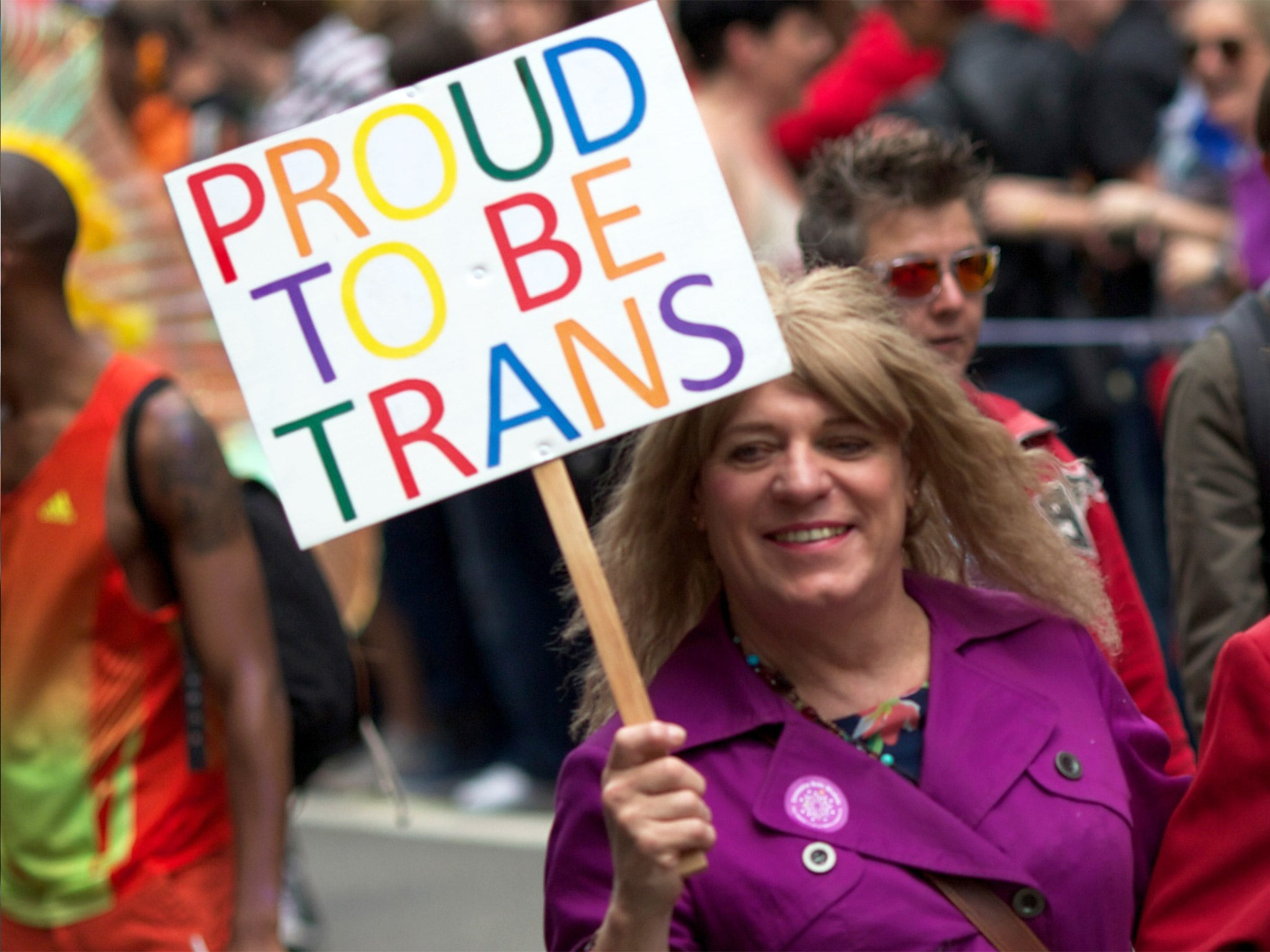Parliamentary report on transgender rights has many recommendations which should be adopted immediately
Cultural change takes time, but sensible policymaking can get in front of it, and serve as a propeller

Your support helps us to tell the story
From reproductive rights to climate change to Big Tech, The Independent is on the ground when the story is developing. Whether it's investigating the financials of Elon Musk's pro-Trump PAC or producing our latest documentary, 'The A Word', which shines a light on the American women fighting for reproductive rights, we know how important it is to parse out the facts from the messaging.
At such a critical moment in US history, we need reporters on the ground. Your donation allows us to keep sending journalists to speak to both sides of the story.
The Independent is trusted by Americans across the entire political spectrum. And unlike many other quality news outlets, we choose not to lock Americans out of our reporting and analysis with paywalls. We believe quality journalism should be available to everyone, paid for by those who can afford it.
Your support makes all the difference.Steadily, the cause of transgender people gains ground. As with all civil rights battles, the start was from a distressing low: the aristocrat Michael Dillon, was the first British citizen to have gender-reassignment surgery in 1945. “When the mind cannot be made to fit the body, the body should be made to fit, approximately at any rate, the mind,” he wrote after the surgery. It cannot be put much simpler, or any legitimate objection be raised. But attitudes at the time were uniformly harsh: Mr Dillon’s family rejected him, the press whipped up a storm, and he fled to India, where he died at the age of 47.
That there has been progress since Mr Dillon’s era – much of it coming within the past decade – should be recognised and celebrated. David Bowie broke precious ground in the 1970s but it has taken time for the use of androgyny as a tool to shock to be replaced by a desire to present gender fluidity as something rather more run-of-the-mill.
Today the US TV series, Transparent, deftly explores what it’s like to be a transgender parent; stars like Caitlyn Jenner and Orange is the New Black’s Laverne Cox have – for millions – put a face to an unfamiliar concept. The media, though far from perfect, is now broadly supportive of those who decide to transition, as was shown last year in the case of former boxing promoter Kellie Maloney.
Where television and celebrity leads, society will often follow. But away from the red carpet, life for the average transgender or genderqueer person – that is, someone who does not feel themselves to fit either category of male or female – remains beset by hardship. Transgender citizens are vastly more likely to self-harm; in one of the largest European surveys, 84 per cent said they had considered suicide, and 48 per cent attempted it.
Cultural change takes time, but sensible policymaking can get in front of it, and serve as a propeller. It is to that end that the Women and Equalities Commission has launched the first parliamentary report on transgender rights in the UK. There remains, as the report makes clear, “a long way to go”.
But many of its recommendations could be adopted forthwith. Only fear could lead someone to protest against the call for police to undergo training in how to deal with hate crimes against transgender people, or for the NHS to reform itself to become more easily navigable for them, or for it to be made simpler to change the sex status on one’s passport. Ireland, Denmark, Sweden, Belgium and Norway have all moved to – or have promised to move to – a system that lets individuals select the gender that appears on official documentation, without a doctor’s note. Needless to say, this has made thousands of people’s lives easier, and nobody’s harder – an easy victory for human rights, common sense and liberalism.
The path, however, does not run entirely smooth. The report calls for “clarification” on the right of transgender convicts to choose whether they stay in male or female prisons. It is absolutely right, where there is no risk to other inmates, to allow free choice. The suicides of two transgender women sent to male prisons shortly before Christmas speak to the risks of not respecting such wishes. But each case must be taken individually: Davina Ayrton, convicted of raping a 15-year-old girl and yet to undergo any form of hormonal or surgical treatment, was last week remanded to a male prison. That is an appropriate decision.
On matters of identity, wherever granting the wishes of individuals does – or threatens – no harm, governments should comply. They should similarly be proactive in preventing discrimination against minorities. These observations are as obvious as Mr Dillon’s, but the case must be made, and their implementation closely observed, over and over, until a man like Mr Dillon faces as little unnecessary trauma as there can be.
Join our commenting forum
Join thought-provoking conversations, follow other Independent readers and see their replies
Comments